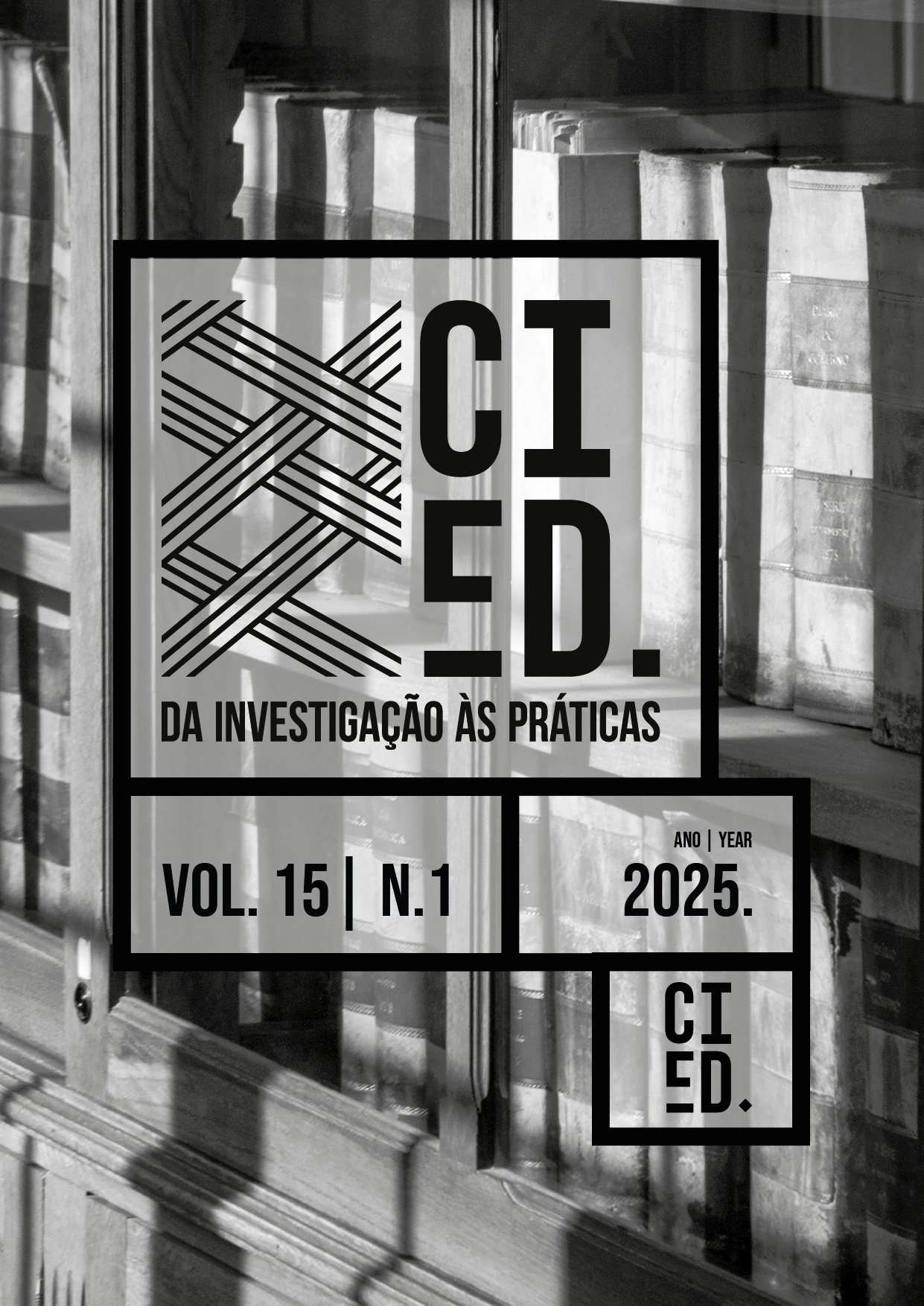Practices of future Mathematics teachers in a PIBID project
DOI:
https://doi.org/10.25757/invep.v15i1.423Keywords:
Learning, Collaboration, Mathematics education, Teacher trainingAbstract
This research aims at recognizing pedagogical practices carried out in a PIBID Mathematics subproject between 2012 and 2022. Thereunto, activity reports, lesson plans, portfolios and proceedings of the institutional event of PIBID at UNESPAR were analyzed, relating them to the seven key elements of Ponte (2014), namely: collaboration, support in practice, focus on student learning, integration of content and pedagogy, professional research, change in professional culture, technologies and use of resources. From the analysis of the productions by former PIBID scholarship holders, it was identified that the main pedagogical practices carried out by them were supported by collaboration, contact with university colleagues and professionals from Basic Education and Higher Education. Furthermore, the tasks carried out over the course of the 10 years were, for the most part, investigative tasks, the use of technological resources and games. Situations that prioritize innovative tasks with a focus on student learning stand out.
Downloads
References
Abrantes, P. (1988, dezembro). Um (bom) problema (não) é (só) ... Educação e Matemática, Lisboa, n. 8, p. 1-10.
Basniak, M. I., & Estevam, E. J. G. (2017, setembro). O PIBID e o desenvolvimento da Scholarship da docência do professor de Matemática. Crítica Educativa, Sorocaba, v. 3, n. 2, p. 602-617.
Boavida, A. M.; Ponte, J. P. Investigação colaborativa: potencialidades e problemas. In: GTI (Org.). (2002). Reflectir e investigar sobre a prática profissional. Lisboa: APM, 2002. p. 43-55.
Brasil. Ministério da Educação. (2018). Acesso à informação secretarias PIBID - Apresentação. Brasília: Ministério da Educação. Recuperado de: http://portal.mec.gov.br/pibid#:~:text=PIBID%20%2D%20Apresenta%C3%A7%C3%A3o&text=O%20objetivo%20%C3%A9%20antecipar%20o,os%20sistemas%20estaduais%20e%20municipais.
Franco, M. A. R. S. (2016, set./dez). Prática pedagógica e docência: um olhar a partir da epistemologia do conceito. Revista Brasileira de Estudos Pedagógicos, Brasília, v. 97, n. 247.
Gatti, B. A. (2013, dezembro). Educação, escola e formação de professores: políticas e impasses. Educar em Revista, Curitiba, n. 50, p. 51-67.
Lakatos, E. M. ; Marconi, M. A. (2003). Fundamentos de metodologia científica. 5. ed. São Paulo: Atlas.
Nóvoa, A. (2009). Professores: imagens do futuro presente. Lisboa: Educa.
Ponte, J. P. (2005). Gestão curricular em Matemática. In: GTI (Ed.). O professor e o desenvolvimento curricular. Lisboa: APM. p. 11-34.
Ponte, J. P. (2014). Práticas Profissionais dos Professores de Matemática. Lisboa: Instituto de Educação da Universidade de Lisboa. Recuperado de: www.ie.ulisboa.pt.
Quintilhano, S. R.; Tondato, R.; Barreto, M. R. (2021). Aplicação da metodologia ativa rotação por estações na Engenharia: uma prática de ensino híbrido. Revista Transmutare, Curitiba, v. 6, e2111899, p. 1-22.
Silva, A. G. S.; Sousa, F. J. F.; Medeiros, J. L. (2020). Ensino de matemática: aspectos históricos. Pesquisa, Sociedade e Desenvolvimento, Vargem Grande Paulista, v. 8, p. e488985850.
Universidade Estadual do Paraná – UNESPAR. (2014). Relatório de Atividades Parcial do Programa de Iniciação à Docência – Unespar. União da Vitória: UNESPAR.
Universidade Estadual do Paraná – UNESPAR. (2016). Relatório de Atividades Parcial do Programa de Iniciação à Docência – Subprojeto de Matemática da Unespar. União da Vitória: UNESPAR.
Vale, I. (2002). Materiais manipuláveis. Apartado: Instituto Politécnico de Viana do Castelo – Laboratório de Educação Matemática (LEM). Recuperado de: file:///C:/Users/halyn/Desktop/Materiais_Manipulaveis.pdf.
Velho, E. M. H.; Lara, I. C. M. (2011, novembro, 01). O Saber Matemático na Vida Cotidiana: um enfoque etnomatemático. Alexandria: Revista de Educação em Ciência e Tecnologia, Florianópolis, v. 4, n. 2, p. 3-30.
Downloads
Published
How to Cite
Issue
Section
License
Copyright (c) 2025 Eliandra Aparecida Portela Kmita, Maria Ivete Basniak

This work is licensed under a Creative Commons Attribution 4.0 International License.
Articles published or submitted to Da Investigação às Práticas are licensed according to Creative Commons Attribution License (CC BY 4.0). Authors agree that:
Copyrights of all articles published are retained by authors with first publication copyright granted to the journal.
All articles are under the Creative Commons Attribution License recognizing the authorship of the publication and identifying that first publication took place in this journal.
Authors have the right to free distribute or make available in private or institutional pages the version published by Da Investigação às Práticas: Estudos de Natureza Educacional provided the original proper citation.
The journal only accepts articles not published previously (except in the form of an abstract or as part of academic thesis), that it is not under consideration for publication elsewhere. After published, the article cannot be published again partial or totally without the editorial board consent.





 e-ISSN: 2182-1372
e-ISSN: 2182-1372